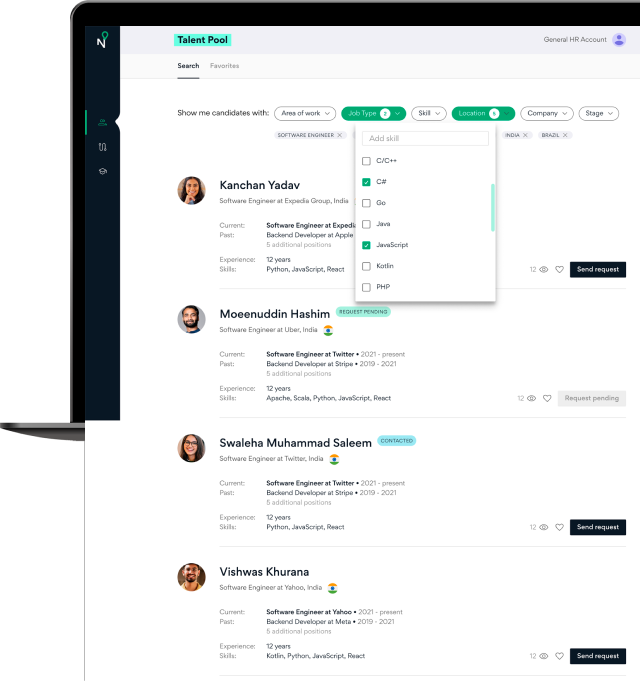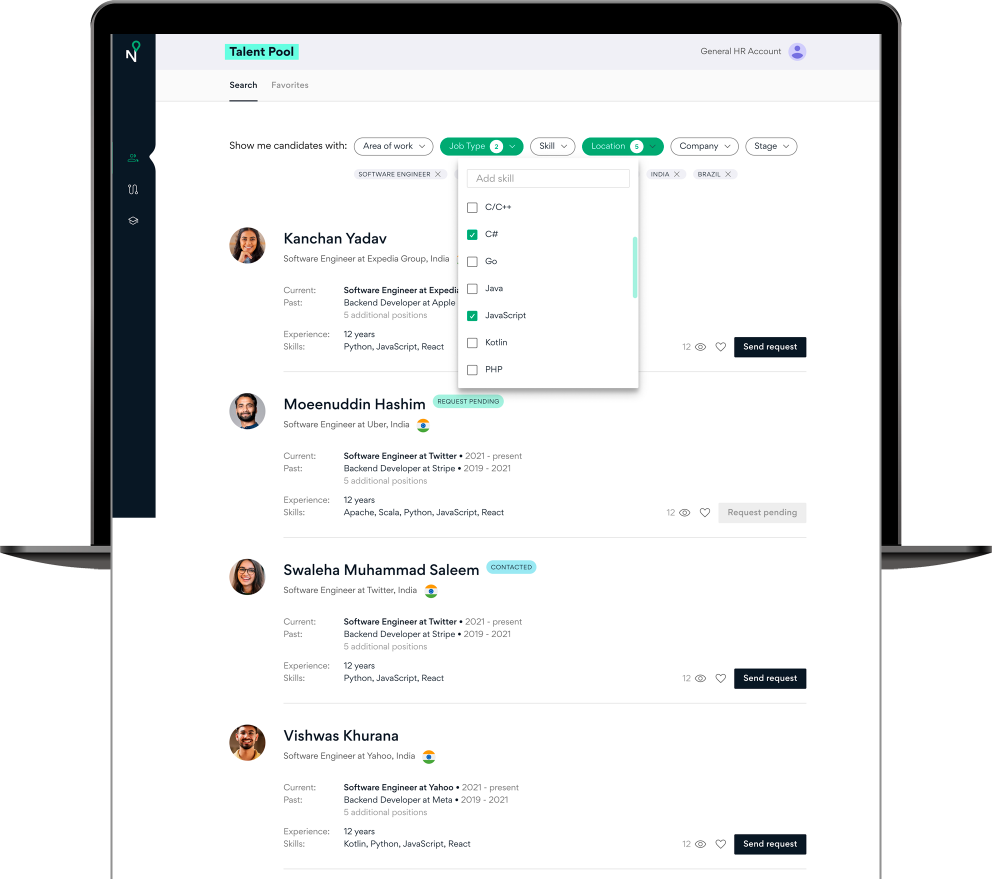Changes in German immigration law
Join our webinar on 10 November, 10 AM, for a deep dive into these changes and to discuss their impact on your international recruitment strategy.
Register here
Join us for an insightful webinar to stay informed about the new skilled immigration act.
Register nowTalent pool preview
Are you curious to explore our international talent pool? Visit the preview, filter talents, and discover potential candidates.
Visit previewWhat the webinar is about.
Germany continues to face labour shortages across various sectors and is gearing up to implement a series of updates to its immigration laws in response to the national workforce challenge. These immigration reforms have significant implications for businesses operating in Germany, so it’s vital that company leaders understand them and how to adapt effectively.
Starting in November, the first set of new regulations will come into effect, simplifying the process for skilled workers to immigrate to Germany. The German government has undertaken a reform of the Skilled Immigration Act, which will be phased in gradually, with additional changes planned for 2024. This reform aims to reduce legal obstacles for university graduates and skilled professionals from outside the European Union.
Germany’s immigration initiative consists of three parts, starting in November, followed by the subsequent phases in March and June 2024. These changes introduce a range of benefits for relocating workers, especially for Blue Card holders.
The revised regulations now allow relocating employees to qualify for immigration based on vocational certifications and professional experiences, departing from the traditional reliance on academic qualifications and conventional hiring pathways. This shift enables Germany to attract highly qualified skilled workers from beyond the EU, addressing the labour shortage issue more effectively.





